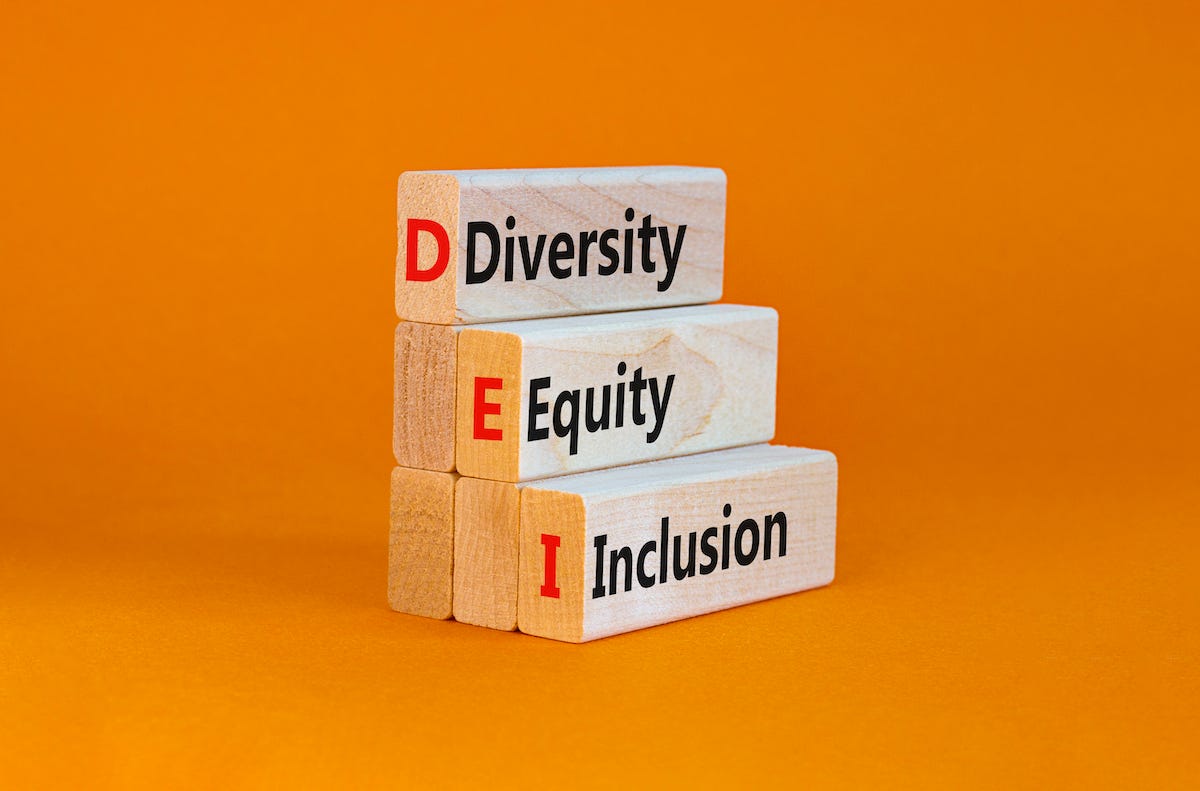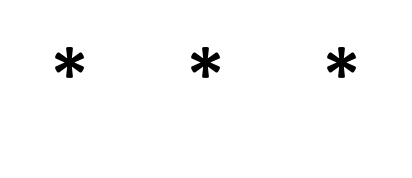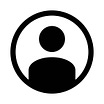Diversity statements have become a normal and often mandatory component of job applications for teaching positions in higher education, in spite of the fact that their use has been called into question as a kind of political test. Since 2019, their use has not only become more widespread, but has also acquired an even more pronounced political dimension. For instance, it is increasingly viewed as problematic to work toward “equity” by treating each person as an individual—without regard to race, creed, gender, etc.. Instead, we are asked to go further and state what type of political action one intends to take in the classroom and on campus.
In one sample diversity statement from UCSD, a state-funded institution, a promise to fight the federal government on immigration policy is even invoked: “I would continue to help Professor Z draft UC-wide legislation to protect undocumented students from possible federal action—an issue critical at the UCSD campus due to its proximity to the border.” Even if one finds this commitment laudable, as I do, the use of these diversity statements is, in my view, just as divisive and prejudicial as the attitudes they are intended to correct. Such statements directly attempt to influence future generations by requiring ideological conformity as a condition to teach, thereby circumventing the purpose of a university in a pluralistic and democratic nation.
The following is my honest diversity statement. But according to the guidelines I have seen, this diversity statement would render me unhireable at many universities in the US. Because I am in a contingent academic position, I have chosen to remain anonymous.
As a gay man who started college in the 1980s, I set out in an undergraduate social space dominated by the AIDS crisis. Homophobic jokes were prevalent, and it didn’t help that I came from a Christian background raised by two homophobic parents. My childhood environment had been so fixed and rigid that I was not only “in the closet,” but entirely unaware that I was gay. As my story played out, I married a woman and, after a decade of struggle, we divorced; I acknowledged my identity, and came out. In retrospect, my homosexuality should have been obvious. I had boyfriends in college, and my adolescent crushes were all on males. That I couldn’t see this at the time is indicative of just how deep self-deception can run when social pressures marginalize such differences.
Other factors were at play as well. I grew up in a harsh home and was later diagnosed with Autism Spectrum Disorder and Post Traumatic Stress Disorder. These disorders, no doubt, contributed to my self-deception about being gay. I became more aware of my identity when I asked an employer for an accommodation for my ASD and was denied, even though I had proof of my diagnosis from a psychiatrist. At that point, I felt that I was a victim of a system that didn’t recognize me.
My autism isn’t as noticeable anymore. After years of struggle, I’ve learned to navigate social situations (though with high anxiety), and no one is aware that I’m homosexual unless I tell them. The PTSD also doesn’t show. It has become easy for others to overlook these parts of me, and the ways that they have made my life more difficult, especially because I am a white male.
Simply because of my gender and my skin color, my hardships are invisible. Consequently, I am not a part of the “right” kind of diversity.
As a teacher, and as a human being, I do my best to respect all people as individuals, comporting myself toward each with compassion, taking them where they are, and promoting their best interests. For the past seven years, I have volunteered as an academic coach for “at-risk” (often first generation) students, and I try to remember to carry cash for the impoverished homeless people I meet on the street, many of whom are non-white. In the past, I have even volunteered in homeless shelters and nursing homes.
However, at this point in history, my background as an intersectional minority (gay with disabilities), my academic work on social justice, and even my efforts in my personal life to promote social justice, would not be sufficient to show that I support “diversity, equity, and inclusion.” At the end of the day, I believe that by the time all these intersectional categories get carved out, we are each in a minority of one. This opinion makes it almost impossible for me to write this statement. According to my more politically motivated DEI friends, my view simply fails to support the DEI movement.
I’ve sought guidance on how best to prepare this statement. According to many, one ought not say in such statements that understanding and promoting diversity, equity, and inclusion is a matter of treating each individual as an individual without regard to any group affiliation. It is sad that this is not enough, because anything more is worse.
If basic dignity cannot be given to each individual, then some category or another will be used to exclude; not to mention that categorizing people for ideological purposes is dehumanizing, no matter the goal. It is also logically incoherent to support DEI by maintaining that certain kinds of diversity matter more, and that equity is owed only for a preferred subset of inequities.
Consequently, I can only offer you this as a statement. I get it. I understand why diversity matters. Having experienced being excluded simply because I am the wrong kind of minority, I know firsthand why it matters. This has reinforced in me the danger of DEI ideology that uses group categories to decide who is allowed in and out of the set of people that constitute the oppressed minorities. None of this makes sense if it results in unjustly pushing some out in order to justly pull some in.
In all likelihood, this forthright “diversity statement” would fail the ideological test inherent in the very request for this statement. Nevertheless, I do my very best not to treat any individual as a representation of a social or political category. I treat every individual with dignity and respect, and promote the interests of everyone I meet to the fullest extent that I can.
I have tried to write this statement many times over the last few months. I resent that the only coherent way to write it is to lay bare my personal story for anonymous committees to read and exploit. (The privacy of personal struggles is no longer respected in this climate. Such struggles are assumed to be absent, unless one parades them around and turns them into a political statement.) If being who I am and treating everyone as an individual are insufficient indicators of my respect for marginalized people, and of the need to promote them (us!), so be it. But if this is in fact insufficient, then let’s at least not deceive ourselves: I am excluded from the club of DEI supporters for no other reason than that I’m the “wrong” kind of diverse and I hold the “wrong” ideas about diversity.
The opinions expressed here do not necessarily reflect those of the Foundation Against Intolerance & Racism or its employees.
In keeping with our mission to promote a common culture of fairness, understanding, and humanity, we are committed to including a diversity of voices and encouraging compassionate and good-faith discourse.
We are actively seeking other perspectives on this topic and others. If you’d like to join the conversation, please send drafts to submissions@fairforall.org.
Join the FAIR Community
Click here to become a FAIR Volunteer or to join a fair chapter in your state.
Join a Welcome to FAIR Zoom information session to learn more about our mission by clicking here. Or, watch a previously recorded session click here to visit the Members section of www.fairforall.org.
Sign the FAIR Pledge for a common culture of fairness, understanding and humanity.
Join the FAIR Community to connect and share information with other members.
Share your reviews and incident reports on our FAIR Transparency website.
Read Substack newsletters by members of FAIR’s Board of Advisors
Common Sense – Bari Weiss
The Truth Fairy – Abigail Shrier
Skeptic – Michael Shermer
Journal of Free Black Thought – Erec Smith et al.
INQUIRE – Zaid Jilani
Beyond Woke – Peter Boghossian
The Glenn Show – Glenn Loury
It Bears Mentioning – John McWhorter
The Weekly Dish – Andrew Sullivan
Notes of an Omni-American – Thomas Chatterton-Williams






"At the end of the day, I believe that by the time all these intersectional categories get carved out, we are each in a minority of one."
Exactly, which is what makes the idea of the "right kind of diversity" so insidious and absurd. Many excellent insights in this piece. It speaks to me, is well-reasoned, thoughtful, and genuine. A human being wrote it. What more could a hypothetical DEI committee want from a member of its faculty? We know what more, unfortunately. But in reality, with a few tweaks, I could adopt it as my own alternative DEI statement.
There are so many good things in this article. Thank you for writing it. I hope you will find courage in knowing that you are not alone in recognizing the danger of DEI ideology.